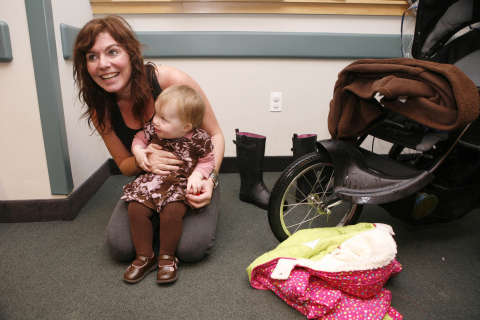ANNAPOLIS, Md. — The state’s attorney for Prince George’s County says parents shouldn’t have to worry about their children’s safety while they are at work.
Angela Alsobrooks wants tougher penalties for people running unlicensed day care centers in Maryland, and she took her case to Annapolis on Friday.
She supports a bill authored by Del. Alonzo Washington that would take aim at those who run unlicensed day care facilities. Washington is a Democrat representing Maryland’s 22nd District, which includes Prince George’s County.
“There are a good number of children in these unlicensed facilities that are in harm’s way,” Alsobrooks told the Maryland House of Delegate’s Ways and Means Committee.
The high costs of child care, she said, have some parents turning to lesser-priced, unlicensed facilities that don’t meet state standards and where employees lack proper training to care for children.
From 2010 through 2014, 13 children died while at unlicensed child care facilities in Maryland; and since those numbers were tallied, Prince George’s County has added a number of cases to the total, Alsobrooks said.
The definition of a child care facility, according to Alsobrooks, is individuals who care for other people’s children for more than 20 hours a week. One exception is individuals caring for children to whom they are related.
Running a legal child care facility involves an individual getting a license from the State of Maryland’s Department of Education. Among the requirements: Prospective operators must go through state orientation and provide information to the licensing office on how the day care will be operated, maintained and insured.
The bill calls for fines to go as high as $2,500 for a first offense and up to $5,000 for a second offense.
If a child is seriously injured or killed while at an unlicensed facility, the proposed legislation would also put jail time on the table for those operating the facility, whether they are responsible for what happened to the child or not.
“Now we have criminal penalties to accompany the civil penalties that already exist that are, for the most part, unenforced,” Alsobrooks said.
The bill, she said, would encourage facility owners not only to be careful about whom they hire, but also to ensure that they are running their centers properly.
“If you’re operating a facility, this puts the responsibility on that facility owner to make sure they are licensed, or else,” Alsobrooks said.
The bill still needs to make its way through the House, Senate and onto the governor’s desk before it becomes law.








